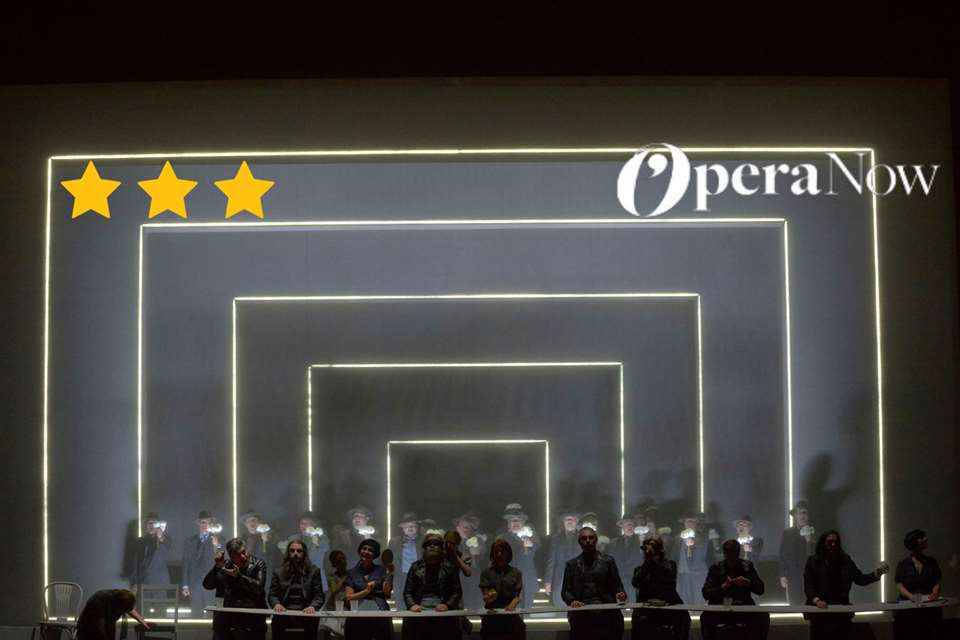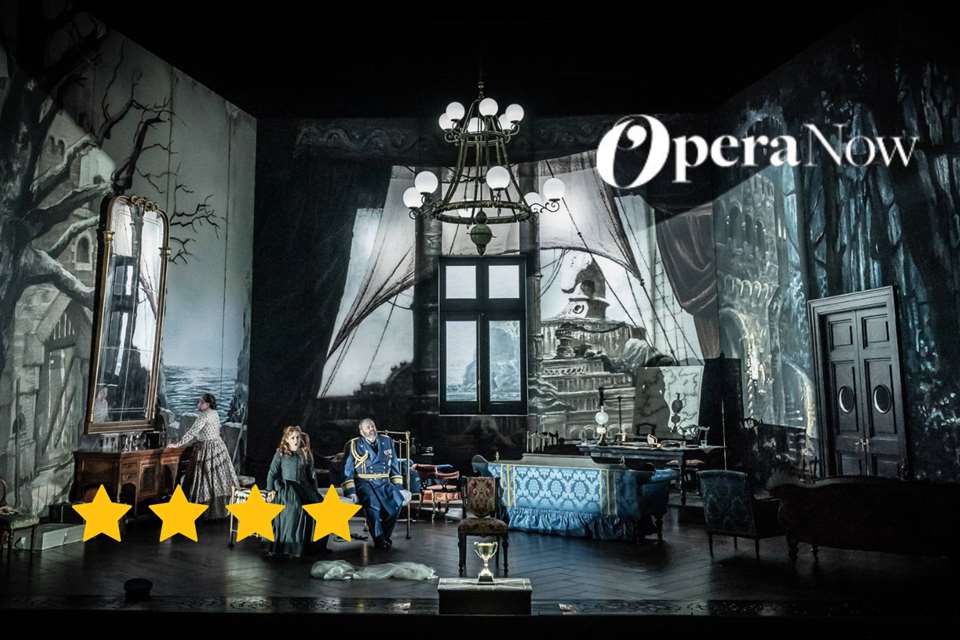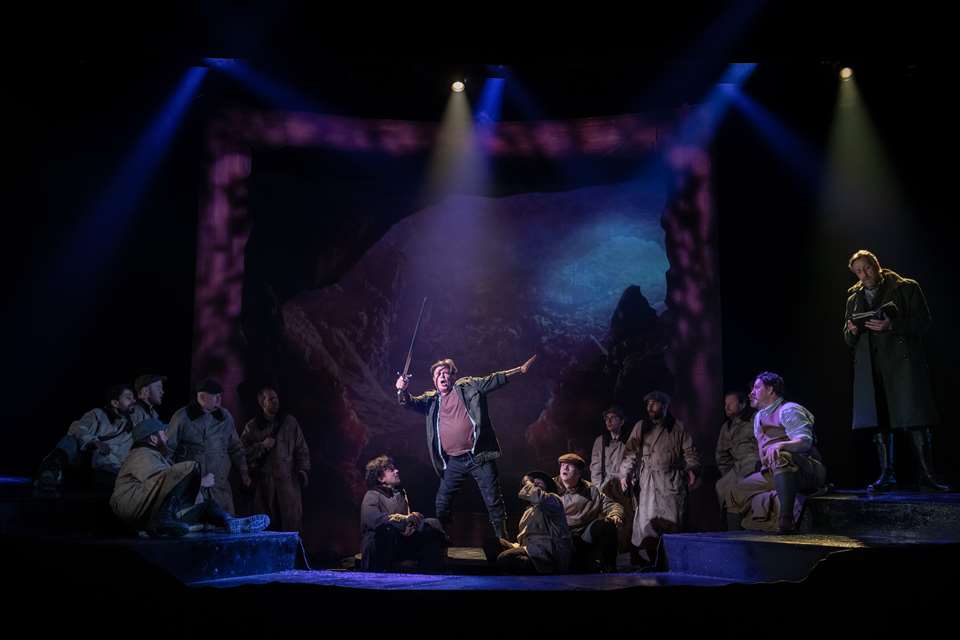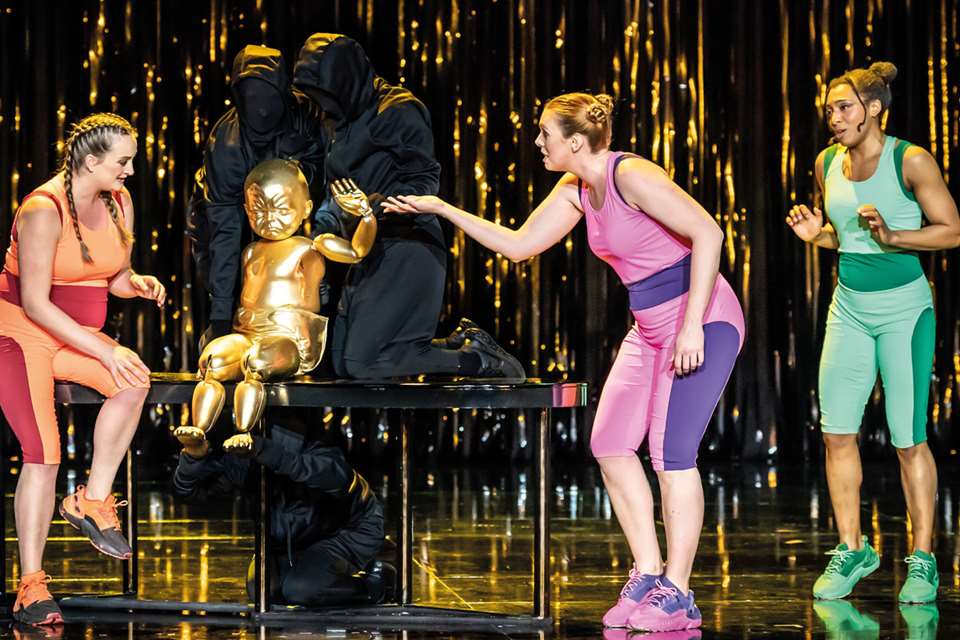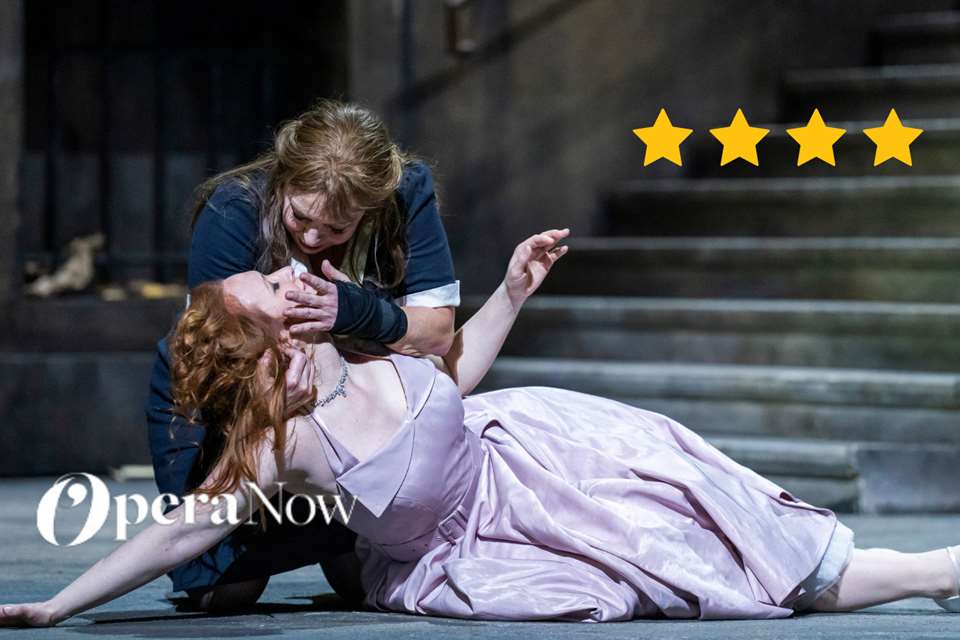Daniel Behle interview: ‘If I don’t want to hear myself in a particular role, then I won’t sing it’
Hattie Butterworth
Wednesday, January 31, 2024
As tenor Daniel Behle moves towards Wagner roles, taking the title role in Christoph Loy’s new Lohengrin at Dutch National Opera, he shares the importance of family, versatility and making space to listen in his life as an artist
![Daniel Behle [Lucian Hunziker]](/media/247724/photo-1_lucia_2_2019-n.jpg?&width=780&quality=60)
Close to five hours of Lohengrin on opening night at the Dutch National Opera left me in a buzzed daze as I sped along the misty canal at 9am the following morning for my interview with Daniel Behle.
Sat in the dimly-lit cafe at the house was Behle and his family, up for the sunrise and reluctant to turn the lights on, much to my delight. ‘We can sit by the window,’ Behle gestured to a seat streamed in sunlight and overlooking the water.
An immense build up to opening night of Christoph Loy’s new production of Wagner’s early opera, Behle tells me, means that the morning following the premiere is a joyful moment.
‘It gets easier from here. This new production actually is my biggest production this year because I try not to overdo it. Some of my colleagues do one production after another without a break and they’re not at home at all.’

Behle, passionate about recorded sound, says he thoroughly enjoys the recording process [Nancy Horowitz]
Behle, based in Switzerland, has a young family and he continually stresses its priority. ‘Normally, I try to argue with opera houses to have shorter rehearsing time. But this production is really a different thing because I worked with Christoph Loy and in this house on this very important change for me. I’m now getting older (Behle is turning 50 this year) and I’m known for Mozart and that kind of repertoire, but the younger people are getting better and better so I have to find my place as an older singer.’
Behle was born in Hamburg, his mother the Austrian mezzo/soprano Renate Behle. But his younger years were dedicated to study of the trombone and composition. It was only in his early 20s that Behle turned his focus to opera and he has since then appeared with most important opera houses and orchestras around the world, developed a reputation for his interpretation of Mozart and become a prolific recording artist. But Behle is determined not to be pigeon-holed. Having diverse abilities and interests is something he attributes to the influence of his mother: ‘I must really give credit to my mother because she did all the roles side by side. She continually changed between mezzo and soprano, singing Tosca on one day and then Rosina and then she did Carmen, and nobody knew. Today everyone is put in a corner and say, “So, Behle is Mozart. He doesn’t do anything else well, he just does Mozart”.
‘I hate this,’ he protests. ‘50 years ago every singer just tried to sing roles with their voice. You just have to have a good sense of what fits. If I don’t want to hear myself in a particular role, then I won’t sing it.’
Moving to the challenges of Wagner, and in particular Lohengrin, Behle explains the anxiety felt in the vast amount of waiting required in the opera: ‘It’s definitely another kind of singing in Lohengrin. Of course it takes more voice but it’s the time waiting that makes it so hard. It’s a four-and-a-half-hour evening and, for Lohengrin, the big thing is at the end. So I have two acts just to get in tune. The second act is always bad in Wagner because you wait. You start, you sing and you go on stage and it’s a very nice first act. And then you wait for an hour!’
Wagner appears alongside Strauss in Behle’s latest recording: Richard: Strauss & Wagner for voice and orchestra, on Prospero Classical. Behle beams when we talk about the disc and it’s clear from his extensive knowledge of microphones and recorded sound that it is a true labour of love.
‘It’s my 19th solo album. I’ve done a lot of recordings because I like the recording project process very much. Also, the feeling that that something stays around. Because with performing opera, now the next performance counts, but yesterday is gone. It’s just a feeling.’
Behle also explains the journey to working with the Turkish orchestra featured on the disc: ‘I met the conductor Thomas Rösner in 2013. I didn’t know him before and it was such a nice performance that we talked immediately after and said we wanted to work together on something. We stayed in touch and then the opportunity came up to perform with the Borusan Istanbul Philharmonic in Turkey, which is a great orchestra. They want to try to be better known because music is a big political issue over there. The orchestra doesn’t have a very easy stand, but they are so, so great.’
The disc moves through the Strauss songs, weaving in and out of Wagner’s great opera scenes from Lohengrin to Tannhäuser. ‘There are great parts of Wagner’s operas to show many colours in your voice, and the orchestra was very happy because they can really shine.’
‘I hired Christopher Tarnow who is a very intense and very precise audio engineer and he led the recordings with Thomas Rösner and his orchestra. It was such a pleasure to be there five days in Istanbul to record. And at the end, I did a concert without a fee at the Atatürk Cultural Centre in front of 2000 people. And we did the whole programme on one evening.’
For Behle, creating a recording is as much about the possibility to hold people’s attention in a world moving towards short-form entertainment and media: ‘Nobody wants to wait anymore,’ he laments. ‘We have lost that completely because everybody just listens to three minutes here and two minutes there, I feel it in everything. In a CD, you’re forced to sit through. It’s another kind of impact to listen from the beginning to the end and hear how the dialogue is shared between Richard Wagner and Strauss. How they fit into each other.’
The future for Behle includes a return to London and the Royal Opera House in the summer for Così fan tutte, a trip that will include a family holiday in a part of the world loved by Behle. ‘I love the people in the UK and I love the humour! I’m a big Monty Python fan. I love to imagine Michael Palin or John Cleese doing their stuff. I go and see the spots! It reminds me of childhood.
‘Also with left side driving – it’s kind of fun after a while,’ He laughs.‘And London! I mean, the only problem is that it’s expensive. But it’s a beautiful city.’
This interview originally appeared in the Spring 2024 issue of Opera Now. Join our community of opera lovers – subscribe to Opera Now today




